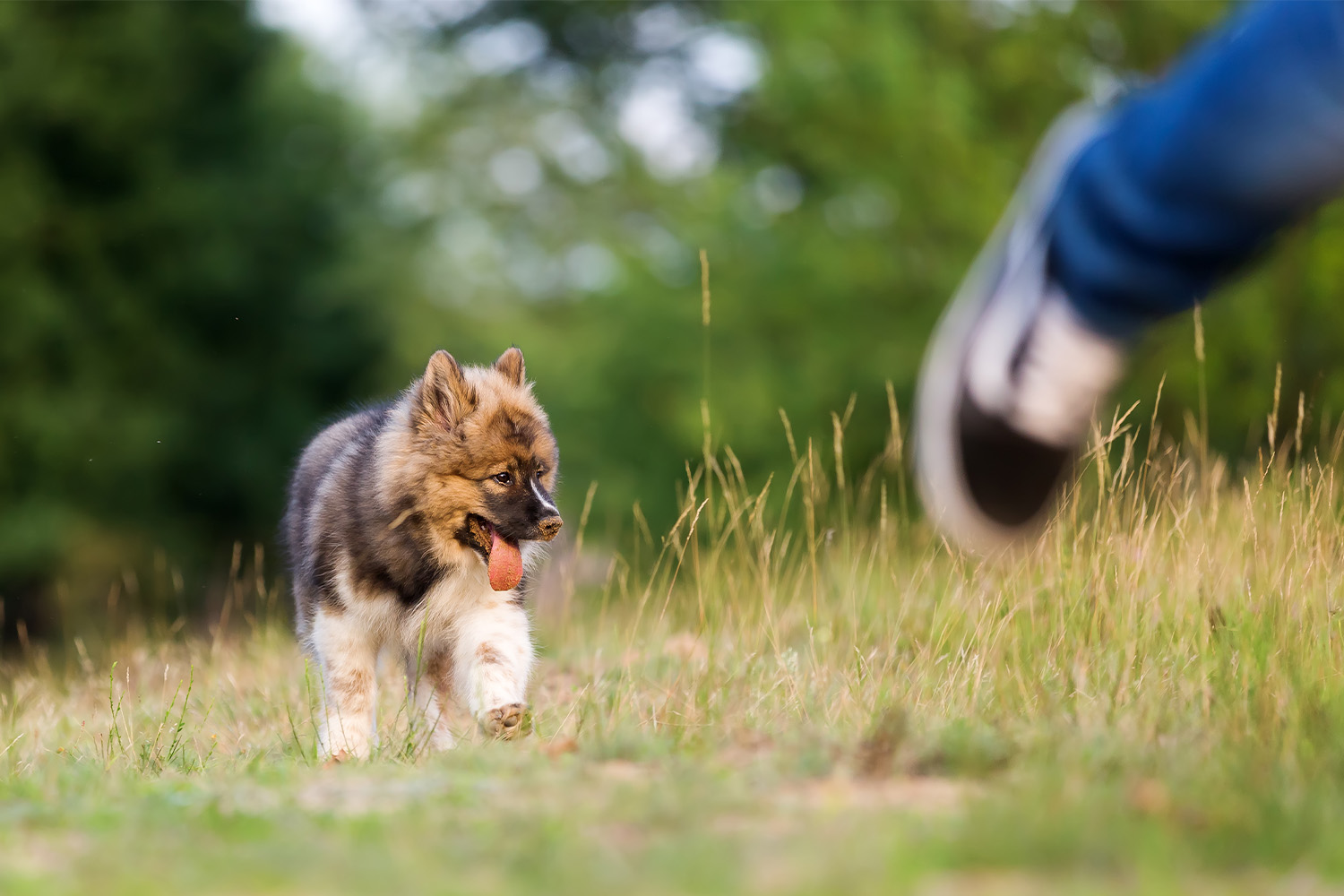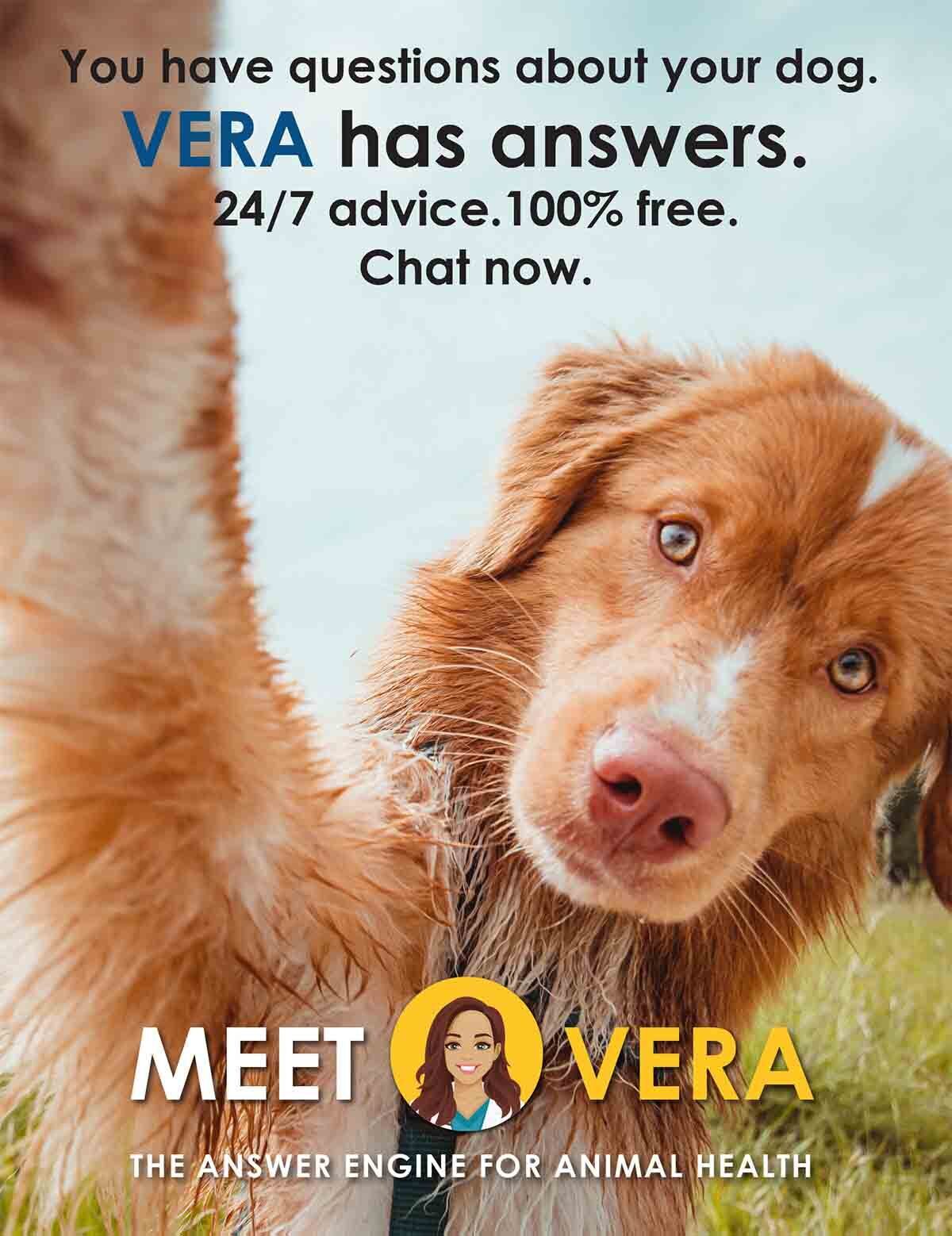Who here has been a victim of tripping over your dog after somehow forgetting that they are right behind us? Most of us who have dogs are used to having a canine shadow wherever we travel in the house, but that doesn’t mean we forget from time to time and end up bumping into them.
You might be wondering, “Why is my dog insistent on following me around?” “Why can I not go to the bathroom alone?” “Are they being clingy?” There are a few different reasons why your dog likes to be involved in everything you do, ranging from simply loving you to having separation anxiety.
Keep reading to learn more about why dogs trail after their humans so much:
My Dog Follows Me Everywhere. Why?
Dogs are loyal companions who are devoted to their humans. In general, dogs have a pack mentality and like to identify a leader to follow. If you’ve been able to train your dog and work with them to establish your reliability and authority, it’s likely that your dog views you as this leader.
Naturally, your canine companion is going to want to follow you and see what you’re up to because they like to spend time with you. They also rely on their humans for everything in their daily routines: food, water, playing, walks, bathroom breaks, and of course, treats.
If you’re moving about the house, they will be inclined to follow you from room to room simply to see what you are getting up to. You’re the center of your dog’s attention.
Remember: you are your dog’s best friend!
Your Dog’s Personality Has an Impact on Their Clingy Behavior
Not all furry family members are going to be as attached to their person as some will be. Dog breeds have different personalities that reflect how they act at home when with their pet parents. You might be a high-energy dog parent who ends up with a really lazy dog who wouldn’t move from their spot on the couch unless food was guaranteed!
Working and herding dogs like border collies are often deeply attached to their person, and the same goes for older dogs who rely on their humans for additional assistance. Smaller dogs like chihuahuas also like to stay close to their humans. Some puppies might be more rambunctious and ambitious, leaving your side to find trouble to get into, but more often than not, if you walk the opposite way, your puppy will come next.
What Is Separation Anxiety? How Your Dog Reacts to You Leaving.
There is such a thing as a velcro-dog. These dogs are attached to their human’s hips and prefer to spend all of their time next to them. The difference between a velcro dog and a dog with separation anxiety comes down to whether or not your dog suffers from anxiety.
Dogs that suffer from separation anxiety can experience it in multiple different ways. When they are away from their person, even for a short period of time, they go into a true panic attack and make themselves ill or show signs of destructive behavior.
If you’re worried that your dog pursuing you around is becoming an issue, more so for them than you, consider talking with their veterinarian about ways to help. The best way to combat separation anxiety is to work on building confidence in your dog. The sooner you get your dog’s help, the happier they will be.
Reasons Dogs Follow Their Humans
Your dog relies on you for most things. They anticipate that you will give them food and water at set times, take them out for bathroom breaks when they need to go, and play and snuggle throughout the day. Even if they are getting all of that and more, they will still want to be close by when you’re home.
While most reasons that your dog is following you are harmless and quite sweet, there is always the possibility that your dog is feeling unwell or looking for you to help them.
They Love You
Dogs are incredibly social animals that like to spend as much time as possible with their humans. Whether you are playing with them, snuggling on the couch, or more, it’s a sign that they adore you.
Dogs release the hormone oxytocin when they interact with a person that they like. This hormone gives the feeling of happiness and draws your dog closer to you.
If your dog has chosen you to follow, it’s because they know that you will fulfill their needs and provide them with safety and security. Having a dog that is attached to your hip is not a bad thing; some might even say it is quite the compliment.
They’re Bored
When a dog is simply looking for something to do, they might tag along to see if you are getting into anything interesting. If your dog is following you, they might be bored. To address this behavior, keep plenty of toys available for your dog to play with throughout your house.
You can also spend time working on training with your dog. Mental stimulation is just as important as physical stimulation. Having puzzles, learning new tricks, and interactive toys can help limit your dog’s boredom.
They Might Be Looking for a Reward
As much as your dog loves you, they all know that you are the person who gives them what they want. Often it’s taught during dog training that listening and paying attention to their human is enough to reward them with a treat. Your dog might be following you because they think they can get something out of it based on positive reinforcement.
This is something that your pet will pick up on the longer they spend time with you. How do you react when your pet follows you? Do you give them a treat, do you ignore them altogether, or do you give them a pat on the head?
If you reward them when they follow you, they will continue to do so as they age. This is a dog behavior that is more learned than anything in this case, so you might have had a hand in teaching your dog to track you through the house.
Your Dog Might Need Something
Dogs communicate in multiple ways that are much different from how humans communicate with each other. Your dog knows that they need something but might not know the best way to ask for it. Can you blame them?
If your dog is trailing behind you, they might be in need of something. From attention to a bathroom break to needing physical activity, your dog might be trying to tell you what they need. You might be able to tell if this is the case if your dog is whining, pacing, and barking at you or acting strange compared to their usual self.
They Might Be Feeling Anxious
Dogs with separation anxiety are more glued to your side than others. However, separation anxiety isn’t the only cause of general anxiety. If your anxious dog is worried about something or thinks they must be alert, they might become more anxious and look to you for security.
If your dog is anxious or afraid, they might pin their ears back or give you “whale eyes” — when their eyes widen and their pupils dilate as your dog stares at you. If your pup is afraid of thunderstorms or fireworks, you’ve likely seen this reaction before.
Your dog’s body language might significantly change, including a tucked tail or even intense shaking. If your dog feels anxious, they’ll likely stick closely behind you or even hide in the darkest corner of the house. Separation anxiety usually requires some assistance from a professional dog trainer.
It’s a Natural Instinct
It is a part of a dog’s social behavior to stick close to someone they trust. If that happens to be you, then congratulations! You’re likely your dog’s favorite. Your dog might be nosy, but they truly just want to know what you’re up to.
As mentioned before, dogs are pack animals, and it’s in their nature to imprint on a leader and follow them. They will look to you to make sure that there are no threats, that they will be sure to eat, and will be fulfilled in a variety of different ways.
However, sometimes we don’t want our dogs following us. For example, we might not want older dogs climbing down the stairs to the basement. This is when pet-proofing additions like baby gates are a smart purchase.
Ask Questions Through AskVet
When you have a dog, there’s no such thing as a silly question. Being a dog parent can be anxiety-inducing, so it’s always nice to find others who are dealing with similar issues. When you sign up with AskVet, you can gain access to a community of other pet lovers looking to form connections.
After setting up a virtual call with a Certified Pet Lifestyle Coach™, you can ask any question that you have and have an intelligent and helpful response given back to you. Sign up today in order to learn more about your pet and how you can improve their life.
Sources:
Canine Separation Anxiety: Strategies For Treatment And Management | NCBI






